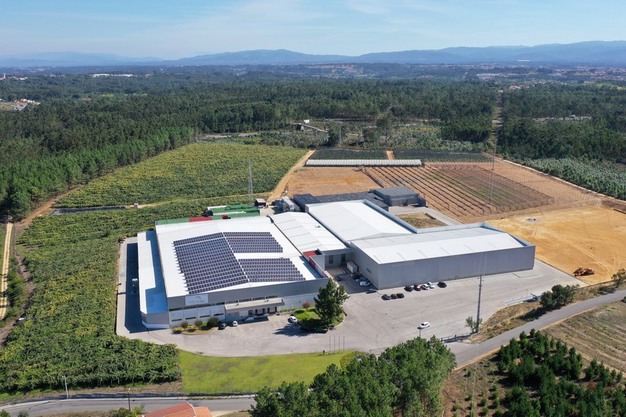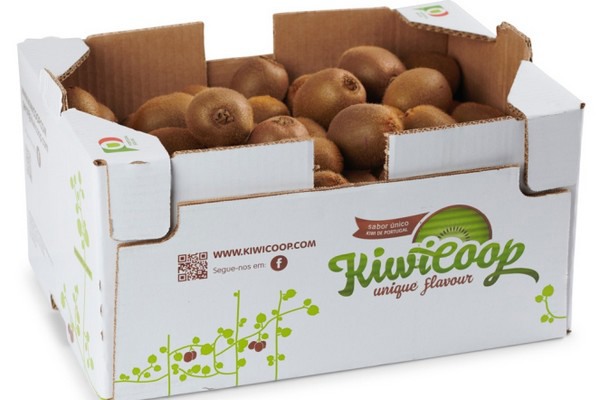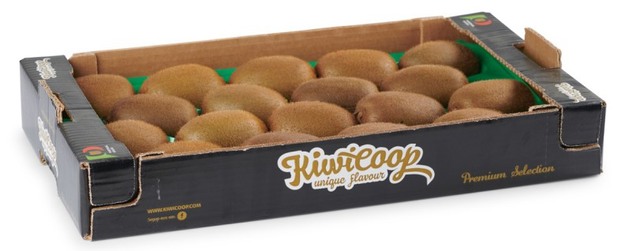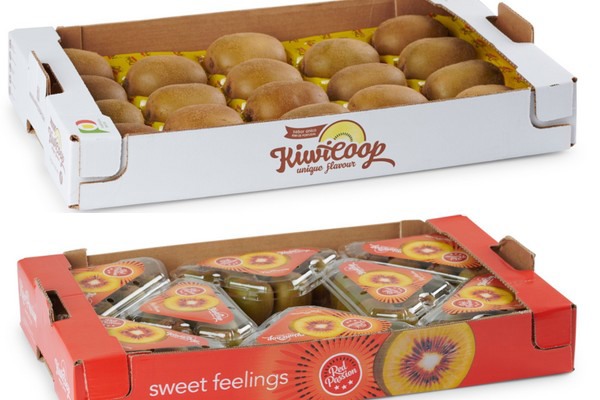Kiwicoop, based in Oliveira do Bairro in Aveiro, is a Portuguese company that has been in the market for 35 years. They produce and market green-fleshed kiwi of the Hayward and Bo.Erica varieties, yellow-fleshed kiwi of the Dori® and Soreli varieties, red-fleshed kiwi RS1®-Red passion and Kiwi Berries of the Ananasnaia and Geneva varieties. According to Nelio Marques, Chairman of the Board of Directors of Portuguese fresh produce exporter Kiwicoop, there are higher volumes, but smaller sizes for the green kiwifruit this season:

"For the green kiwi, already calibrated, there is greater quantity of category I fruit, with a decrease in category II and Twinned. However, on the other hand, there is an increase in small sized kiwis. The fruit is well preserved, which has allowed us to sell it in line with our strategy of being on the market for longer, concentrating sales in the second quarter of the year. Then there's the yellow kiwi. We've already sold practically all of our volumes. The yellow kiwi has proven to be a high quality product, which we improve in from year to year, and which is increasingly appreciated by consumers. For our red kiwi, sales continued at a good pace, with practically all of the fruit now being sold. The fruit received allowed us to understand that with appropriate cultural practices it is possible to obtain fruit with a higher caliber in Portugal compared to the same variety in other origins. The strategic location with Atlantic influence allows Portuguese growers to obtain an excellent color and flavor."

Although there are lower volumes for this year's kiwi campaign, Marques still hopes the company can enter new export markets this season. "This campaign we procured around 8000 tons, which represents a 10% reduction in volumes compared to the previous year. Our main export markets are Spain, France, the United Kingdom in Europe. However, we also export to the South America, mainly Brazil and to Morocco in Africa. Looking forward, we're interested in entering new markets, such as the Nordic countries of Europe, being Finland, Denmark, Sweden and Norway. But also countries like Germany and the Netherlands, among others have made our list of interest. We'd also like our kiwis to enter the USA and Canada."

Lower volumes were partly caused by unfavorable weather conditions, Marques explains: "At an early stage in the plants' vegetative cycle, we already knew that the 2023 campaign would not be a normal campaign. During the following development of branches and flower buds phases, the climatic conditions were slowly re-established until, at the time of flowering, the rains returned. This hampered the circulation of pollen in the orchards, causing major problems with the fruits setting. After this phase, temperatures began to rise rapidly to values above average and not at all favorable for fruit growth, culminating in some damage, due to fruit scalding in orchards with poor vegetation cover, as well as death of plants as a result of excessive heat."

As can be expected, when production is lower, prices start to increase. According to Marques the price could increase a bit further after March. "Compared to previous years, there was a significant increase in prices charged in this campaign for all calibers. There was an initial period with increased prices that resulted from the shortage of Kiwi from the Southern Hemisphere. This meant there was an enormous pressure to harvest the fruits early. As we do not compromise on the quality of the Kiwi we offer to our customers, we did not accept this pressure, although commercially it was tempting. During a period between December and February demand was lower, as traditionally happens. This allowed for a stable price, still higher than the previous year, essential to adapt profitability to the increase in production costs. An increase in price is expected from March onwards, due to the increase in demand caused by the scarcity of kiwis in Europe."

Marques expects the kiwi season to be successful, and hope to be able to supply their kiwis until the end of June: "The prospects for this campaign are optimistic. This has to do with the growing demand for kiwifruit consumption and the scarcity of kiwifruit on the market. This scarcity is a result of some reduction in production in Europe this year as well as the forecast of a drop in production in the southern hemisphere again. In the case of Kiwicoop, we have a guarantee so far that the fruit will be well preserved, which allows us to have the necessary confidence to be selling our kiwi until the end of June and thus help our customers, avoiding supply shortages, and at the same time obtaining a fair value for our kiwifruit."

For more information:
Nélio Marques
Kiwicoop
Email: geral@kiwicoop.com
https://www.kiwicoop.com/
